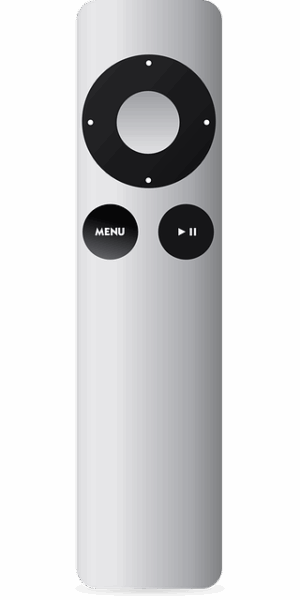Mosquitoes pose a significant health threat as disease vectors, necessitating effective control strategies. Targeted approaches focus on eliminating breeding sites (stagnant water) and using eco-friendly methods like biological control, habitat manipulation, and natural repellents. Modern technologies such as drones, sensors, and data analytics enhance precision and efficiency in mosquito management. While chemical pesticides offer immediate relief, their environmental impact raises concerns, prompting a shift towards sustainable alternatives. Community engagement through awareness campaigns plays a vital role in collective prevention efforts. Seasonal variations in mosquito behavior dictate targeted strategies during peak activity periods. Future prospects include genetic engineering and advanced technologies for enhanced mosquito control while mitigating vector-borne diseases.
In the quest for effective mosquito control, understanding these persistent pests is paramount. Mosquitoes, with their complex behavior and breeding habits, pose a significant challenge globally. This article delves into comprehensive strategies to combat mosquitoes, exploring both traditional methods and innovative technologies. We analyze chemical versus natural repellents, discuss targeted treatment approaches, highlight the crucial role of community engagement, examine seasonal variations influencing mosquito populations, and preview emerging trends in mosquito control research. Discover the multifaceted approach to achieving effective mosquito management.
Understanding Mosquitoes: Their Behavior and Breeding Patterns
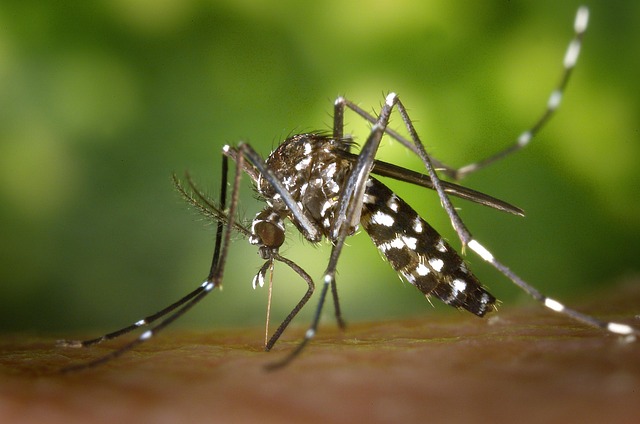
Mosquitoes are more than just a nuisance; they are tiny vectors that can transmit diseases like Zika, West Nile, and Dengue fever. Understanding their behavior is crucial for effective mosquito control. These insects breed in stagnant water, with female mosquitoes laying their eggs in pools, ponds, or even small accumulations of water in containers like buckets or tires. They prefer warm, humid environments and are most active during dawn and dusk.
Recognizing their breeding patterns allows for targeted strategies. Mosquito control measures include eliminating standing water, using insecticides, installing mosquito traps, and applying natural repellents. Regular maintenance of properties to prevent water buildup is an essential first step in reducing mosquito populations.
Traditional Mosquito Control Methods
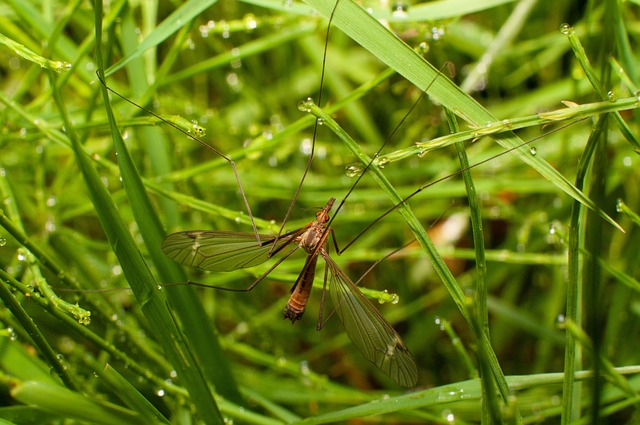
Traditional Mosquito Control methods often rely on chemical pesticides, which can be effective in the short term but come with significant drawbacks. These chemicals can have harmful effects on both targeted mosquitoes and non-target species, including beneficial insects and wildlife. Moreover, they may contaminate water sources and contribute to environmental pollution.
Alternative approaches like biological control, habitat manipulation, and vector resistance aim to reduce mosquito populations through more eco-friendly tactics. Biological control involves introducing natural predators or parasites that target specific mosquito species. Habitat manipulation focuses on removing standing water where mosquitoes breed, while vector resistance encourages the use of mosquito-resistant plants and structures. These methods not only provide better Mosquito Control but also promote a healthier balance within ecosystems.
Innovative Technologies for Effective Mosquito Management

Innovative technologies are transforming mosquito control, offering more effective and efficient solutions than traditional methods. Tools like GPS-guided drones equipped with insecticides provide precise targeting, minimizing environmental impact and reducing chemical usage. These drones can cover large areas swiftly, making them ideal for rapid response to mosquito-borne disease outbreaks.
Additionally, advanced monitoring systems that employ sensors and data analytics enable real-time tracking of mosquito populations and disease spread. By analyzing environmental factors and identifying hotspots, these systems help authorities allocate resources more strategically. This proactive approach to mosquito control not only improves public health but also contributes to the overall sustainability of insect management practices.
Chemical vs Natural Repellents: A Comparative Analysis
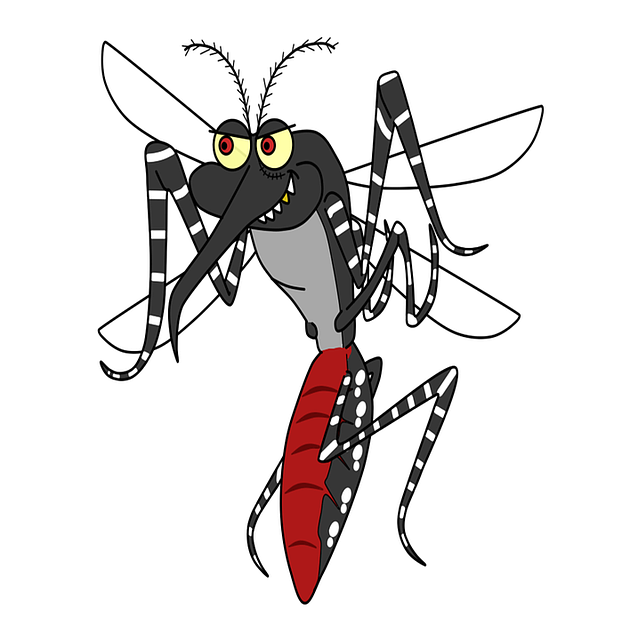
When it comes to mosquito control, the choice between chemical and natural repellents sparks ongoing debate. Chemical options, like DEET, offer robust protection against bites, making them popular for outdoor activities. However, concerns about potential health risks and environmental impact have driven interest in natural alternatives. Essential oils like citronella, lavender, and peppermint are increasingly favored due to their effectiveness and perceived safety.
While natural repellents can be effective against mosquitoes, their potency often lags behind chemical formulations. Research suggests that consistent application is crucial for natural options to maintain their protection. Moreover, individual sensitivities vary, with some finding certain essential oils irritating or less reliable in high-mosquito density areas. Striking a balance between effectiveness and safety remains paramount in the search for optimal mosquito control.
Targeted Treatment Strategies for Specific Areas
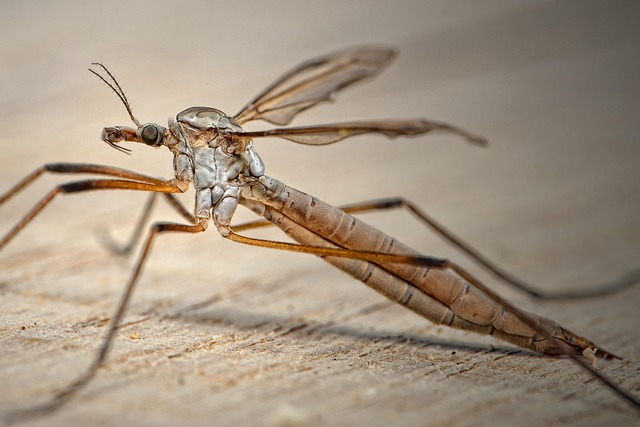
When it comes to fast mosquito control, targeted treatment strategies are key. Instead of spraying chemical insecticides across large areas, which can be costly and harmful to the environment, focus on specific hotbeds of mosquito activity. Identify standing water sources like clogged gutters, buckets, or abandoned containers, as these serve as breeding grounds for mosquitoes. Target these problem areas directly with eco-friendly treatments such as biological agents that eat mosquito larvae or specialized devices that attract and trap adult mosquitoes.
For more robust and sustainable Mosquito Control, consider the habitat approach. This involves modifying or eliminating mosquito breeding sites around homes and communities. By removing standing water and maintaining proper drainage, you disrupt the life cycle of mosquitoes, reducing their population significantly. Community involvement is crucial in this process, as collaborative efforts to keep areas free from standing water can create a more effective barrier against these pesky insects.
Community Engagement: The Role of Public Awareness in Mosquito Control
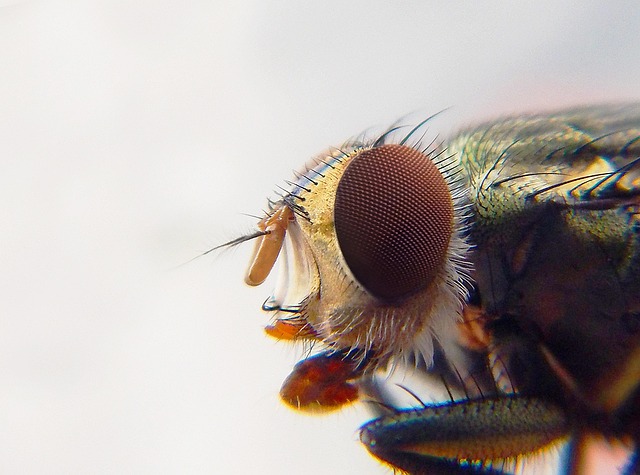
Community engagement plays a crucial role in effective mosquito control. Public awareness is a powerful tool that enables residents to become active participants in mitigating mosquito-borne diseases. By educating folks about the breeding grounds and transmission routes of mosquitoes, communities can collectively take preventive measures. Simple actions like eliminating standing water sources, using insect repellents, and installing window screens significantly reduce mosquito populations.
Engaging the public also fosters a sense of collective responsibility. When people understand the impact of mosquitos on their health and well-being, they’re more inclined to support local efforts and initiatives. This collaborative approach ensures that mosquito control strategies are not just reactive but proactive, creating a healthier and more sustainable environment for everyone.
Seasonal Variations and Their Impact on Mosquito Populations
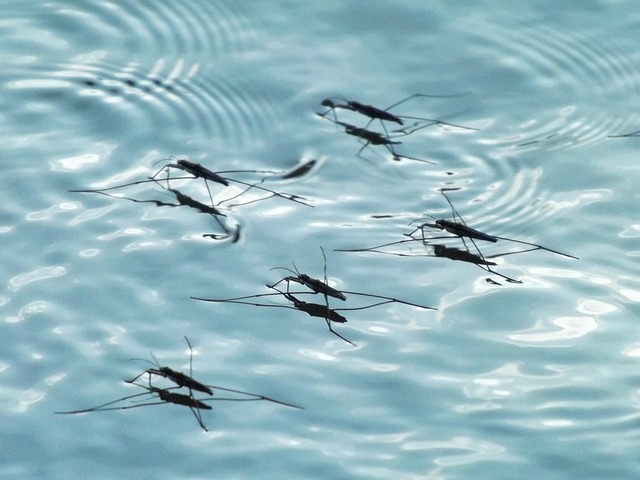
Mosquito populations experience fluctuations throughout the year, with seasonal variations playing a significant role in their behavior and abundance. In many regions, mosquitoes are most active during warmer months, typically from late spring to early autumn. This is when they breed and reproduce at an accelerated rate due to the optimal temperature and moisture conditions for their life cycle. As a result, mosquito control becomes more challenging during these periods, requiring proactive measures to manage their populations effectively.
The impact of seasonal changes on mosquitoes is twofold. First, it influences their feeding patterns, with some species becoming more active at dawn and dusk, while others prefer the cooler evening hours. This knowledge is crucial for implementing targeted mosquito control strategies, such as timed outdoor activities or the use of specific repellents. Second, seasonal variations affect their distribution, with certain mosquito types thriving in wetter environments during summer, leading to concentrated areas of high population density. Understanding these patterns helps in focusing control efforts on hotspots and reducing the overall impact of mosquitoes on human health and well-being.
Future Trends in Mosquito Control: Emerging Solutions and Research

The future of mosquito control looks promising with a range of emerging solutions and research initiatives aimed at tackling this persistent global health challenge. One of the most exciting trends involves genetic engineering and the use of genetically modified mosquitoes. Scientists are developing strains that are resistant to diseases, which could lead to the introduction of these modified mosquitoes as a natural form of control. This approach not only reduces the mosquito population but also mitigates the risk of disease transmission.
Additionally, technological advancements such as satellite imagery, drones, and AI-powered apps are revolutionizing mosquito monitoring and control. These tools enable more precise identification of breeding grounds, allowing for targeted interventions. The integration of these technologies promises to enhance existing mosquito control programs, making them more efficient and effective in the fight against vector-borne diseases spread by mosquitoes.
